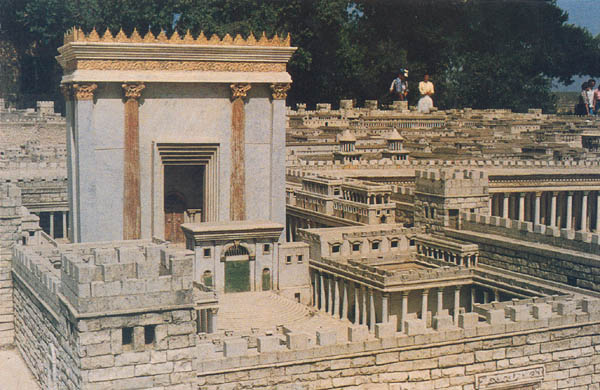Image Details

Zev Radovan
Majesty in Miniature. Scale model of the Second Jerusalem Temple and its surrounding courts stands on the grounds of the Holy Land Hotel in Jerusalem.
The destruction of the Temple in 70 A.D., during the First Jewish Revolt against Rome, proved a seminal event. Deprived of the Temple cult, Jews turned instead to the development of the oral Torah, a body of rabbinical legal rules, scriptural exegeses and biblical commentaries that form the foundation of modern Judaism. During the succeeding centuries, the oral Torah continued to evolve, spurred by the repression following the failure of the Second Jewish Revolt against Rome in 132–135 A.D. and the Christianization of the Roman world in the fourth century.
Author Jacob Neusner notes that for Jews, the oral Torah, like the partly contemporaneous New Testament for Christians, mediates and expands on the authority of the Hebrew Scriptures, acting as “a prism through which the light of the Old Testament” is interpreted.
